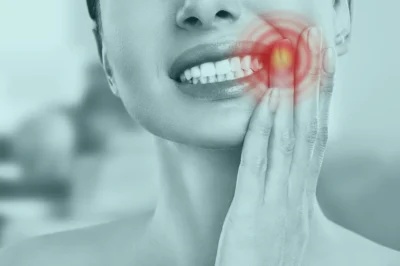The nocturnal nature of this condition makes it challenging to self-diagnose, highlighting the importance of understanding the signs, causes, and potential consequences of bruxism treatment for comprehensive oral health. Bruxism, commonly known as teeth grinding or clenching, is a prevalent but often misunderstood dental condition. Many individuals may not even be aware that they are grinding their teeth, as it often occurs during sleep. Bruxism can manifest as a subconscious response to stress, anxiety, or even an abnormal bite.
Recognizing Bruxism’s Telltale Clues
While bruxism may go unnoticed by the individual, certain signs and symptoms can act as red flags. Morning headaches, jaw pain, facial soreness, and earaches are common indicators of overnight teeth grinding. Dental professionals often observe telltale signs during routine check-ups, such as worn-down tooth surfaces, flattened enamel, and increased tooth sensitivity. In severe cases, bruxism can lead to jaw disorders, damaged dental work, and even facial changes. Recognizing these signs early on allows for intervention and management to prevent further complications.
Unravelling the Psychological Aspects of Bruxism

Stress and anxiety are significant contributors to bruxism. The correlation between elevated stress levels and teeth grinding is well-established, as individuals may subconsciously clench their jaws or grind their teeth as a response to emotional tension. Understanding the psychological aspects of bruxism is crucial in developing holistic approaches to management. Stress reduction techniques, mindfulness practices, and addressing underlying psychological factors can play a pivotal role in alleviating bruxism and promoting overall well-being.
The Impact on Oral Health: From Tooth Wear to TMJ Disorders
Bruxism can exert a significant toll on oral health, affecting various aspects of the dentition and temporomandibular joint (TMJ). The constant grinding or clenching places excessive force on the teeth, leading to wear, chipping, and fractures. This not only compromises the structural integrity of the teeth but also contributes to heightened tooth sensitivity. In more severe cases, bruxism can lead to the development of temporomandibular joint disorders (TMD), causing jaw pain, difficulty in opening and closing the mouth, and even facial discomfort. The cumulative impact of bruxism underscores the importance of early detection and intervention to preserve oral health.
Diagnosis and Bruxism Treatment: Navigating the Path to Relief
Diagnosing bruxism often involves a comprehensive evaluation by a dental professional. In addition to clinical examination, dentists may inquire about the individual’s medical history, stress levels, and lifestyle factors to pinpoint the underlying causes. Once diagnosed, the focus shifts to implementing effective teeth grinding treatment strategies. Custom-made night guards, worn during sleep, serve as a protective barrier that prevents direct tooth-to-tooth contact, reducing the impact of grinding. Lifestyle modifications, stress management techniques, and, in some cases, orthodontic interventions may be recommended to address the root causes of bruxism and alleviate symptoms.
Preserving Oral Health
While bruxism treatment strategies provide relief, preventive measures and long-term management are vital components in preserving oral health for individuals with bruxism. Regular dental check-ups enable professionals to monitor the condition, assess the effectiveness of interventions, and make adjustments as needed. Additionally, adopting stress-reduction practices, maintaining a balanced lifestyle, and being vigilant about oral hygiene contribute to overall well-being and help manage the impact of bruxism on the teeth and jaws. By taking a proactive approach to bruxism, individuals can safeguard their smiles and enjoy lasting oral health.
Understanding bruxism treatment goes beyond recognizing the physical act of teeth grinding; it involves delving into its psychological underpinnings and its potential consequences on oral health. From identifying the signs to addressing stress-related triggers and implementing effective mouth guard for teeth grinding strategies, managing bruxism requires a multifaceted approach. By unravelling the mysteries of bruxism and adopting comprehensive preventive measures, individuals can navigate the path to relief, preserve their oral health, and mitigate the long-term impact of this common yet often underestimated condition.

